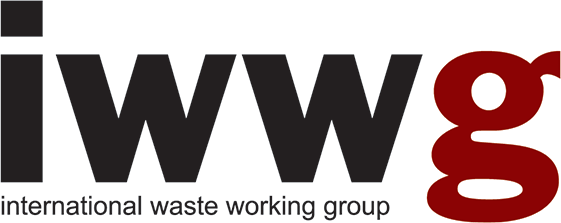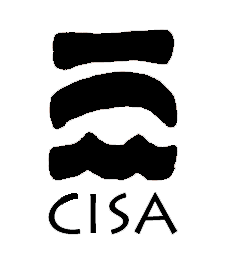GLOBAL DEVELOPMENT OF GREENHOUSE GAS EMISSIONS IN THE WASTE MANAGEMENT SECTOR
- Available online in Detritus - Volume 07 - September 2019
- Pages 104-118
Released under CC BY-NC-ND
Copyright: © 2019 CISA Publisher
Abstract
The Member States of the United Nations Framework Convention on Climate Change are required to periodically publish their national inventories of anthropogenic emissions in National Inventory Reports. The data used in this paper was extracted from these reports and applied to generate a study of the development of greenhouse gas emissions in the waste management sector. The results show a reduction of greenhouse gas emissions for developed contries/regions from 1990 to 2016 due to improved collection and treatment of landfill gas, a shift from landfilling to biological and thermal treatment, as well as a shift to separate waste collection and treatment. The developing countries and regions show another development of greenhouse gas emissions. On the one hand, their greenhouse gas emissions from the waste sector strongly increased due to higher generation of waste. And on the other hand, they increased due in most cases to unorganized and technically insufficent disposal of mixed waste on dumpsites along with better observation of disposal sites and therefore better registration of emissions. Nevertheless, the per capita emissions in developed countries/regions are with approx. 500 kg CO2-eq./a much higher than for developing and emerging countries/regions, which just emit around 100 kg CO2-eq./a.Keywords
Editorial History
- Received: 28 Jun 2019
- Revised: 09 Sep 2019
- Accepted: 19 Sep 2019
- Available online: 26 Sep 2019
References
Abu Qdais, H., Wünsch, C., Dornack, C., & Nassour, A. (2019). The Role of Solid Waste Composting in Mitigating Climate Change in Jordan. in Waste Management & Research, 1–10, June 2019,
DOI 10.1177/0734242X19855424
Bilitewski, B. & Wünsch, C. (2017). WTE, Greenhouse Gas Benefits. in Encyclopedia of Sustainability Science and Technology, Meyers, Robert A. (ed.), ISBN 978-1-4939-2493-6
BMU (2018) Waste Management in Germany 2018 - Facts, data, diagrams. Bundesministerium für Umwelt, Naturschutz und nukleare Sicherheit, Berlin, Germany
Cuhls, C., Mähl, B., & Clemens, J. (2015). Ermittlung der Emissionssituation bei der Verwertung von Bioabfällen, Texte 39/2015, Umweltbundesamtes, Dessau-Roßlau, Germany
Dehoust G., Schüler, D., Vogt, R., & Giegrich, J. (2010). Climate Protection Potential in the Waste Management Sector Examples: Municipal Waste and Waste Wood. Texte 61/2010, Umweltbundesamt, Dessau Roßlau, Germany
DOS (2017). United States Department of State (DOS). United States Climate Action Report 2014 (First Biennial Report and Sixth National Communication of the United States of America under the United Nations Framework Convention on Climate Change)
ECCC (2017). Canada’s Seventh National Communication on Climate Change and Third Biennial Report – Actions to meet commitments under the United Nations Framework Convention on Climate Change. Evironment and Climate Change Canada (ECCC). Gatineau, ISBN 978-0-660-23785-5
EUROSTAT (2010). Using official statistics to calculate greenhouse gas emissions – A statistical guide. Baudouin, L., Fernandez, R., Gikas, A., Hass, J., Janowska A., Kitou, E., Moll, S., Mozes, C., Noreland, J., Piirto, J., Enescu, R., Nikolaos, R., Tavoularidis P. and Wieland, U. (eds.). ISBN 978-92-79-14487-5
Gniffke, P., & Strogies, M. (2018). National Inventory Report for the German Greenhouse Gas Inventory 1990 – 2016. Climate Change 12/2018, Umweltbundesamt, Dessau-Roßlau, Germany
IFC (2017). Municipal Solid Waste Management: Opportunities for Russia. International Finance Cooperation, World Bank Group. Moscow/Washington
IPCC (2006). 2006 IPCC Guidelines for National Greenhouse Gas Inventories, Prepared by the National Greenhouse Gas Inventories Programme, Eggleston H.S., Buendia L., Miwa K., Ngara T. and Tanabe K. (eds.). Published: IGES, Japan, ISBN 4-88788-032-4
IPCC (2007). Mitigation. Contribution of Working Group III to the Fourth Assessment Report of the Intergovernmental Panel on Climate Change. B. Metz, O.R. Davidson, P.R. Bosch, R. Dave, L.A. Meyer (eds.), Cambridge University Press
Jensen, M. T., Moeller, J., Moenster, J., & Scheutz, C. (2017). Quantification of greenhouse gas emissions from a biological waste treatment facility. Waste Management Volume 67,375-384.
DOI 10.1016/j.wasman.2017.05.033
Kanunnikova, T. (2016). Five incineration plants to be built in the Moscow region and Tatarstan by 2025. In Construction Russian online Journal
Kling, M., Baldauf, M., Böttger, S., & Nöh, C. (2018). Länderprofil zur Kreislauf- und Wasserwirtschaft in Brasilien. uve GmbH für Managementberatung in cooperation with German RETech Partnership and German Water Partnership (eds.). Berlin, Germany
Li, X., Zhang, C., Li, Y., Zhi, Q. (2016). The Status of Municipal Waste Incineration (MSWI) in China and its Clean Development. in Energy Procedia, Volume 104, 498-503. https://
DOI 10.1016/j.egypro.2016.12.084 Modak, P., Pariatamby, A., Saedon, J., Bhada-Tata, P., Borongan, G., Thawn, N., & Lim, B. (2017). ASIA Waste Management Outlook. United Nations Environment Programme, Economy Division, International Environmental Technology Ce
Nelles, M., Dorn, T., Wang, Y., Xu, A., & Morschek, G. (2015). State of waste management in the PR China. In Müll und Abfall Journal 4/2015, Berlin, Germany
Nojiri, Y., Hatanaka, E., Oda, T., Osako, A., Ito, H. Kosaka, N., Yanagawa, M., Hayashi, A., Tanaka, A., & Yoshinaga, H. (2018). National Greenhouse Gas Inventory Report of Japan 2018. National Institute for Environmental Studies. Tsubuka, Japan
Paleari, S., Fischer, C., Junker, H, Mazzanti, M., Wuttke, J., & Zoboli, R. (2012). Transboundary shipments of waste in the European Union. Reflections on data, environmental impacts and drivers
Skryhan, H., Shilova, I., Khandogina, O., Abashyna, K., & Chernikova, O. (2018). Waste Management in Post-Soviet Countries: How far from the EU?. in detritus – Multidisciplinary Journal for Waste, Resources & Residues, Volume 03 – 2018
UN (1992). United Nations Framework Convention on Climate Change. FCCC/INFORMAL/84. GE.05-62220 (E) 200705
UNFCCC (2006). United Nations Framework Convention on Climate Change: Handbook. Produced by Intergovernmental and Legal Affairs, Climate Change Secretariat. Blobel, D., Meyer-Ohlendorf, N., Schlosser, C., Steel, P. (eds). ISBN: 92-9219-031-8, Bonn, Germany,
UNFCC (2014). Report of the Conference of the Parties on its nineteenth session - Addendum - Part two: Action taken by the Conference of the Parties at its nineteenth session
US EPA (2018) National Overview: Facts and Figures on Materials, Wastes and Recycling. https://www.epa.gov/facts-and-figures-about-materials-waste-and-recycling/national-overview-facts-and-figures-materials (accessed September 2019)
Vaccani A. & Asato S. (2014). Internationale Märkte für alternative Verfahren und Strategien der wichtigsten Marktteilnehmer. in Strategie, Planung, Umweltrecht, ISBN 978-3-944310-25-1, Neuruppin, Germany
Vehlow, J., Seifert H., & Eyssen R. (2015). Structural Changes in Japan’s Waste Management. In Müll und Abfall Journal 5/2015Berlin, Germany
Vogt., R., Dehoust, G., Merz, C., Radde, C., Sieck, M., & Schwetje, A. (2015). Climate protection potential of waste management, Part 2 – India and Egypt. In Müll und Abfall Journal 6/2015, Berlin, Germany
WRI 2017. CAIT Climate Data Explorer. 2017. Washington, DC: World Resources Institute
Wünsch, C. & Bilitewski B. (2011). Comparison of greenhouse galances between dumping, sanitary landfilling and incineration of resisual waste. in Proceedings SARDINIA 2011 Symposium: “XIII International Waste Management and Landfill Symposium”, ISBN 9788862650007, S. Margherita di Pula (Cagliari), Italy
Wünsch, C., & Simon, F.-G. (2018). The Reduction of Greenhouse Gas Emissions Through the Source-Separated Collection of Household Waste in Germany. in The Handbook of Environmental Chemistry, Vol. 63, 269-290, ISBN 978-3-319-69071-1, Heidelberg, Germany




